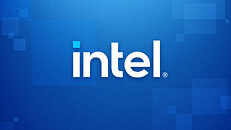World of Goo 2 Available Now on PC, Mac, Consoles, & Mobile Platforms
It's April 25th, 2025!!… So that means that…World of Goo 2—the followup to the indie-hit classic World of Goo, which was released almost 17 years ago…is available…EVERYWHERE! We're currently in the middle of running a fabulous Tomorrow Corporation/2DBOY Publisher Sale until Monday, April 28th—but the fun doesn't stop there! Starting today through May 9th we're offering a launch discount of 15% off World of Goo 2 on Steam and GOG, and if you already own the award-winning World of Goo… you'll get an additional 15% off as an extra Thank You from the World of Goo 2 team! We're also running a bundle for additional savings if you also want to buy the soundtrack!
Discover realistic flowing, splashing, viscous liquid. Route the flow of liquid like a river, convert it into Goo Balls, extinguish fires, and solve puzzles. WHAT STRANGE NEW CREATURES!: discover new species of Goo: Jelly Goo, Liquid Launchers, Growing Goo, Shrinking Goo, Explosive Goo, and more. All with mysterious new properties. WELCOME TO…a thrilling new story to explore over the course of 5 new chapters, bursting with over 60 new levels, each featuring additional challenges.
Discover realistic flowing, splashing, viscous liquid. Route the flow of liquid like a river, convert it into Goo Balls, extinguish fires, and solve puzzles. WHAT STRANGE NEW CREATURES!: discover new species of Goo: Jelly Goo, Liquid Launchers, Growing Goo, Shrinking Goo, Explosive Goo, and more. All with mysterious new properties. WELCOME TO…a thrilling new story to explore over the course of 5 new chapters, bursting with over 60 new levels, each featuring additional challenges.













































